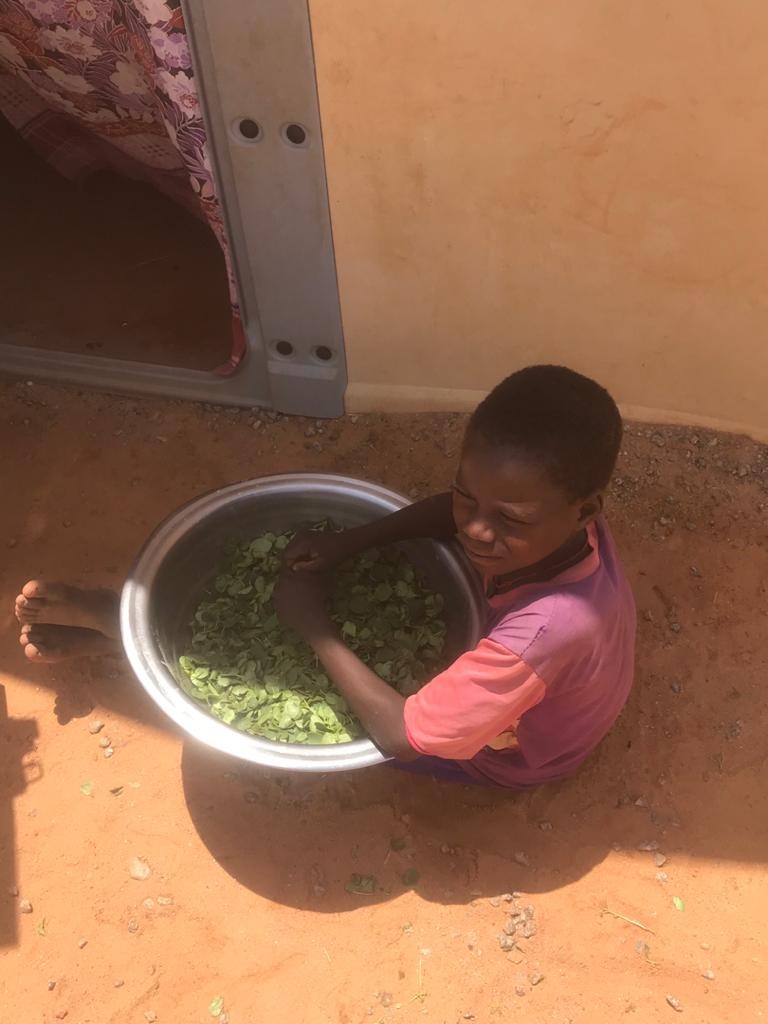“We’re Farmers, We Give Food To People For Free, Now In Refugee Camp, We Are Helpless.”

Residents from communities in Katsina and Sokoto states in North West Nigeria have been fleeing the aggravated killings by armed men. In the past months these people have been moving like locusts across Nigerian border into Niger Republic.
HumAngle undertook a reporting trip to the refugee camps in the neighbouring country to track the daily experiences of these Nigerians. Our reporter spoke with several of these refugees. Hamisu is husband to three wives, father to 15 children. He is one of the refugees in Bawa, Garin Kaka and narrated his condition with HumAngle.
He has some mixed feelings about his condition. “Sincerely speaking, the arrangement was alright. The food assistance is given on a monthly basis. The food ration is not enough for us. They are giving us three mudu (local retail measures) of grain and they will not give us till after one month,” he said.
It is evident from HumAngle observations that going by the increasing number of refugees pouring into Niger Republic from Nigeria, the challenge of feeding all the people will only stretch with each day. Food rationing is done per family.
With a reputation for oversized families, even the best intentions of the care-givers from the United Nations agency readily fall below local rating. The average refugee family consists of 10 children and two wives. For instance, Hamisu who spoke with our reporter told us: “I have three wives and 15 children. They are giving us nine mudu monthly. We normally finish it in ten days.”
He reflected on his life back in Nigeria before the armed invasions and relentless killings. “Prior to these attacks, I was into cattle and sheep business. But here, I am doing nothing to earn a living. So, getting food for my family is the serious challenge here.”
With regards to the accommodation, Rakiyya, wife to Hamisu, offered a voice. She told HumAngle: “sometimes we have 20 people in one tent, especially when it is raining.”
Laminu Hassan, one of the refugees selected by the care-givers to participate in distributing grains told HumAngle that “the grain is given on a monthly basis and honestly will not be enough to most of our people here because we are extended families.”
“You just have to manage the grain for the whole month. If not, you have to borrow from our host community and pay them later, either with beans or maize.”
“Most of our people here don’t really like beans. So whenever the agency distributes it they will sell to the host communities to settle their debt,” he narrated.
“We are farmers in our various communities, we do give people food for free but now look at us here, we become helpless and hopeless. But we are grateful to the agencies involved in serving us.”
Saved by humanitarian organisations
The United Nations Head of Commission for Refugees, (UNHCR) in Maradi, Niger Republic hosts refugees, mainly from different terror prone communities in North West Nigeria. They have three holding camps known as opportunity villages located in the town of Maradi.
The UNHCR office in Maradi estimates that over 70,000 local civilians are in their facilities in Garin Kaka, Gidan Roumji and Dan-Kano, all in Niger Republic. The Garin Kaka opportunity village is just 35 kilometres from Maradi town. Gidan Roumji is however 115 kilometres away from Maradi while Dan Kano is at the border area with Isa and Sabon Birni local government of Sokoto State, Nigeria.
HumAngle visited all three refugee camps. The tents are laid out and numbered according to different communities. A UNHRC staff member told our reporter that “when identified, their location at the remote area’s border with Nigeria, we sent our emergency response team to convey them to opportunity villages.”
The process of admitting the distressed into the opportunity villages is fairly rigorous. According to an official, “a headcount is conducted on the refugees. There is also the process of individual bio data capture. Thereafter, they are mobilized with beddings, tents, utensils and food.”
The agency has a good data system in the opportunity villages. On arrival, they will give each refugee a tag and later capture their biometric data. According to an official, “the refugees are under the protection of international mandate, so we are supporting the Niger Republic government to fulfil this mandate.”

Mallam Amadu Sulaiman Isa, 76-year-old is from Zurmi local government of Zamfara state, in Nigeria. He lost his first wife and three sons in the wave of the terror attacks. He is a refugee in Gidan Roumji opportunity village. Amadu also spoke with HumAngle on his experience.
“Before the agency identified us, we spent days sleeping on the floor with heavy rainfall during days in Dan-Kano village. We couldn’t get accommodation because we’re too many. So we sacrificed the few accommodations given to us by the community to the women, children and the sick ones.”
“These people found us in the remote areas, sent buses to pick us and brought us here. They accommodated us and distributed some utensils and food items to us.”
“We were later mobilized, where each refugee was given a tent and household commodities to make things easy for us.
“Eventually, every displaced person was photographed, and we were given the option to choose between going back to our town, staying at Dan-Kano village or following them to opportunity village in Garin Kaka.”
Housing still a major problem
The tents for the refugees are distributed based on the heads of each family. For instance, Hamisu with three wives got three tents. According to him, “most of our tents here contain between five people to fifteen because some have more children.”

“We are working with partners and local authorities to provide immediate assistance, especially trucking in water with other relief supplies, as people could die of thirst in the desert heat. Water is also needed to help fight COVID-19” said UNHCR
Apart from supplying relief assistance to the teeming refugees, the UNHCR co-opted some of the refugees with skills in carrying out psycho-social support to victims of trauma. This is especially among the newly arrived refugees.
Binta Dan Gwani, from Buzu village in Isa local government area in Sokoto told HumAngle that “some workers used to come every morning to encourage the displaced and the refugees. They usually engage us in different conversations, just to encourage us and make us happy.”
Support Our Journalism
There are millions of ordinary people affected by conflict in Africa whose stories are missing in the mainstream media. HumAngle is determined to tell those challenging and under-reported stories, hoping that the people impacted by these conflicts will find the safety and security they deserve.
To ensure that we continue to provide public service coverage, we have a small favour to ask you. We want you to be part of our journalistic endeavour by contributing a token to us.
Your donation will further promote a robust, free, and independent media.
Donate HereStay Closer To The Stories That Matter




